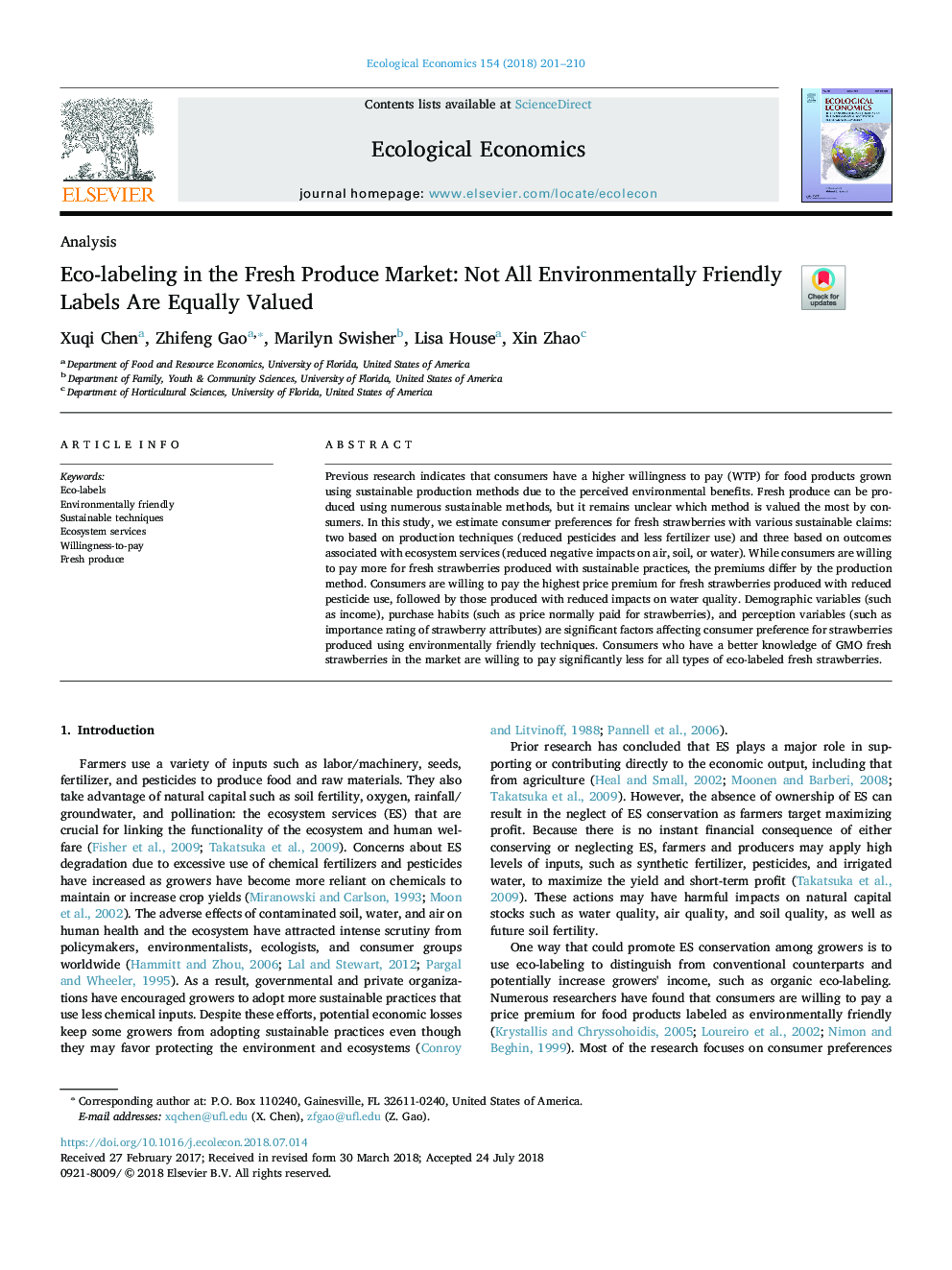| Article ID | Journal | Published Year | Pages | File Type |
|---|---|---|---|---|
| 11004747 | Ecological Economics | 2018 | 10 Pages |
Abstract
Previous research indicates that consumers have a higher willingness to pay (WTP) for food products grown using sustainable production methods due to the perceived environmental benefits. Fresh produce can be produced using numerous sustainable methods, but it remains unclear which method is valued the most by consumers. In this study, we estimate consumer preferences for fresh strawberries with various sustainable claims: two based on production techniques (reduced pesticides and less fertilizer use) and three based on outcomes associated with ecosystem services (reduced negative impacts on air, soil, or water). While consumers are willing to pay more for fresh strawberries produced with sustainable practices, the premiums differ by the production method. Consumers are willing to pay the highest price premium for fresh strawberries produced with reduced pesticide use, followed by those produced with reduced impacts on water quality. Demographic variables (such as income), purchase habits (such as price normally paid for strawberries), and perception variables (such as importance rating of strawberry attributes) are significant factors affecting consumer preference for strawberries produced using environmentally friendly techniques. Consumers who have a better knowledge of GMO fresh strawberries in the market are willing to pay significantly less for all types of eco-labeled fresh strawberries.
Related Topics
Life Sciences
Agricultural and Biological Sciences
Ecology, Evolution, Behavior and Systematics
Authors
Xuqi Chen, Zhifeng Gao, Marilyn Swisher, Lisa House, Xin Zhao,
